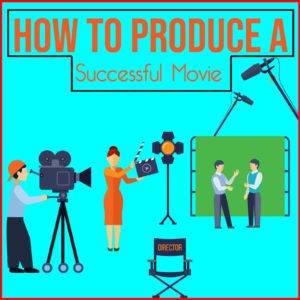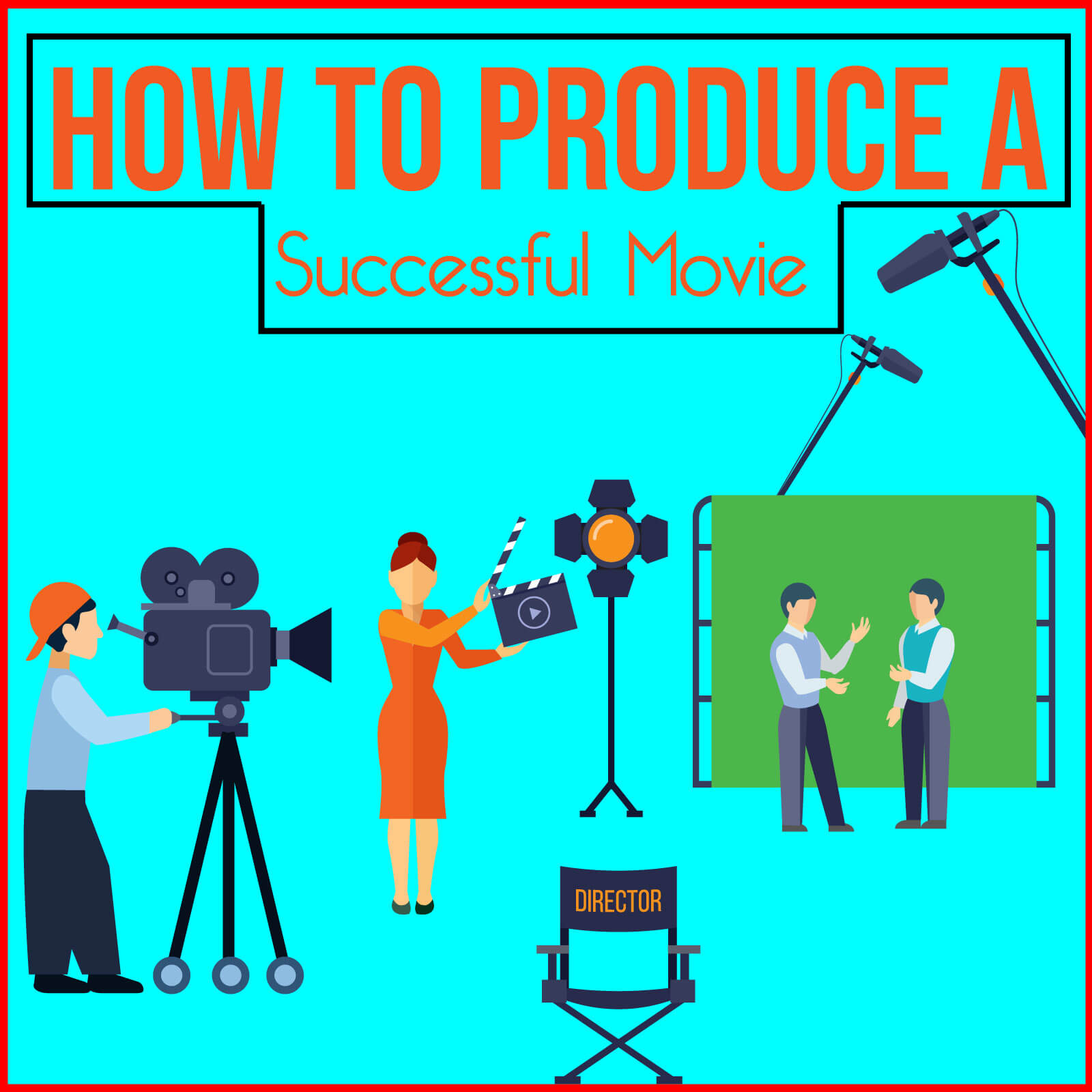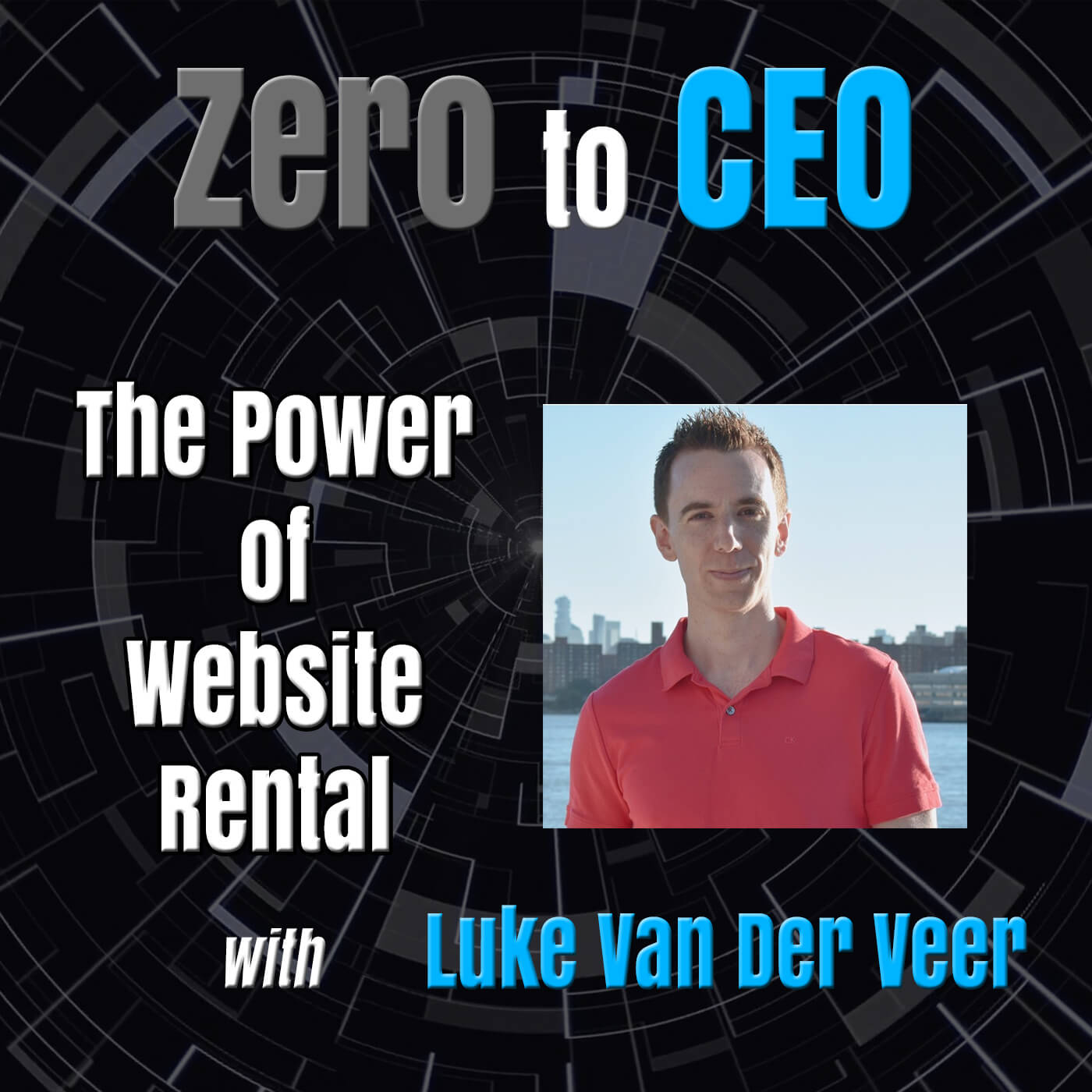How to Successfully Produce a Movie

In this episode I talk about how I produced two of my films – “The Bucks County Massacre” and “The King’s Highway”. Both films have won film festival awards and have been picked up by Los Angeles based distributors and are currently being distributed worldwide.
Here’s the transcript from this podcast episode, please excuse any typos!
In today’s episode we’re going to talk about how you can successfully produce a feature length movie. I’ll give you examples from my own movies, the Bucks County massacre and the Kings Highway. But before I start giving you tips and tricks, you have to remember making a movie is just like building an app or starting a new business, or writing a book or anything project based, there is a step by step process that you should follow and you shouldn’t skip any of those steps. Obviously the first step would be coming up with an idea for a movie, but it goes further than that. Let’s say you want to make a romantic comedy, and you have this idea in your head for a really funny romantic comedy that you think would be popular. Well, you could start jotting down an outline for that, or what you could do is what I did. You could start reading screenplays of romantic comedies that you liked, and of course watching a lot of romantic comedy movies. So there’s a ton of ROM coms out there that you could watch that can give you ideas of what to do, what not to do.
You’ll notice that every movie has kind of like a theme, and the plot is kind of predictable and the character development is, you know, there’s a certain way to do it, it’s usually best friends fall in love and, or there’s a wedding as someone wants to stop and so you want to watch a lot of famous ROM coms and then decide what do you want yours to be like, Are there movies that you think you can make your screenplay relate to so that people say oh I I’ve seen something like this before. Is this good I like, or do you want to be completely different, so that people say well that was an original rom com I really enjoyed. For example, when I did the Bucks County massacre back in 2010, I was playing off of. The Blair Witch Project paranormal activity and Cloverfield. And it just so happens my distributor gave it the tagline. The Blair Witch meets paranormal activity at Cloverfield so it’s kind of coincidental that those three movies were the basis of where I kind of got the idea for my movie. And I did take little bits and pieces of all of them and put them all into one movie that’s kind of where I got my idea for the Bucks County massacre. Now of course it wasn’t critically acclaimed.
You know there’s good reviews and bad reviews, probably mostly bad. It was my first movie. What can I say? But one thing is sure that it was globally distributed. It didn’t get picked up by Los Angeles based distributor, and it did win a film festival little word audience choice, and it has been seen by hundreds of 1000s of people so just because you know didn’t make me this famous director doesn’t mean that it wasn’t a success, it still wasn’t success. So let’s go back to the first thing I was talking about making an outline. So you’ve watched a whole bunch of movies in your genre, you started reading screenplays in your genre so you know kind of what you want to do. Now you have to jot down an outline and start kind of putting down points in pages. So, you know, like page one through 100 for example so you should have like 100 bullet points. That gives you an idea of how the story progresses.
Now, if you want to get into detail, and you want to do things the right way. I would suggest picking up a copy of a book called, save the cat by Blake Snyder, it’s something that I’ve read it’s something that I’ve used and it’s funny when I was introduced to the book by Babs metalla producer in Los Angeles who’s been really kind to me and I reached out to her with some of my scripts and she gave me pointers, and she told me what I was doing right when I was doing wrong. She mentioned to read the book and I did and I realized, half of the stuff I was writing in my screenplays were what saved the cat was telling me to do already, so I feel like I was already doing half the job on my own, which is great because it shows that I was actually learning how to do it the right way without actually knowing the tips from a producer. But once I read save the cat. That’s when I realized the other half of the things that I wasn’t doing correctly and that what Babs was trying to tell me you got to do this, this, this and this, it was in the book and it really, it really lays it out for you on how to do things the way Hollywood expects you to and the way Hollywood wants you to believe it or not, there is a formula, Hollywood has a formula. You’ll notice when you watch a movie. The first couple minutes, you get introduced to all the characters, then something happens and the movie kind of gives you an idea here’s what’s going to be happening in the movie, then you have a good B story, like friends or the family show up or the side story shows up, then the movie the story progresses, and then it gets into something bad happening usually where everything falls apart, and then everyone has to try to pick up the pieces by the end and you either get a happy ending or a Saturday, I mean it’s a pretty standard formula that you’ll notice in movies, and if you follow that formula, you should have a successful script. So for example, the kingshighway, it’s my historical documentary that I produced in 2016. It blew up, it just became popular. The reason I even came up with it, is because I was hell bent on creating a documentary for some reason, I was watching so many documentaries. In the 2000s and like 2005 through 2015 those 10 years,
I was watching so many documentaries and I wonder why they became so popular, like supersize me and food Inc and Forks Over Knives and like all these documentaries about politics and finance and food and health. And I was just like blown away at how many documentaries were coming out every year, and I was watching them. So I was learning the right formula for a documentary, so I kind of visualized it in my head. I had an idea of what I wanted to do. The problem was I didn’t have a topic, and this is the most important part of this episode. When you come up with a topic for a documentary. What I noticed from people who pitched me their movie ideas.
They think too small, but they’ll think about a person or a place, or one thing, you know, a situation, you have to think bigger you have to think, you know, community, global, you know, city, state, country why you gotta think bigger, and that’s when the kingshighway fell into my lap if you watch the movie it’s on Amazon Prime for free. You can also order the DVD and it’s available everywhere digital is available thanks to my distributor indie writers in Los Angeles, you will find that in the first five minutes of the movie I explained to you how I came up with the idea for the movie. It was serendipity. It was luck, it was fate. It was destiny. I did not expect to make the movie, it just came to me. but once I started filming the movie after I wrote a rough screenplay because you can’t really write a screenplay for a documentary but you can write a script, kind of look at my my narration and what I want the talking points to be about and what I, you know, when I interviewed people what I wanted them to talk about. So, when I was interviewing people what I wanted them to talk about, and also something called B roll, which is all the extra footage that you want to film, all the documentation, images, you’re going to show on the screen. The videos are going to show on the screen.
The maps, all the things that I showed in the kingshighway I had to jot all that down, piece by piece section by section so I knew when I was editing, where I was going to put everything. And what I had to film, kind of like, what’s called the shot list. So that’s one thing you need you need a shot list you need to know what you’re shooting when you’re shooting it where you’re shooting it right so in my case when I was going to be interviewing someone at like a historical society or a museum. I made sure that before I went to film. I had a list of things that I wanted to film at the place, not just the interview so I would shoot the interview, but then I would get footage of things like the library or the statues outside or the building itself. I would use my drone and get footage in the air, I would use my gimbal and get nice smooth footage on the ground. I would get birds in the trees outside, I would get, you know, the clouds with a time lapse, like there’s these are the things you have to think about, because when someone is talking on a screen, you can’t just show them talking, you can show them talking sometimes but you want to show what’s called B roll that extra footage on top of the person’s head so you don’t you don’t see their head all the time you see the footage popping in here and especially when they explain things, and you can get the footage that shows that explanation or the topic if they’re talking about a river, if you can go film that river, and then show it while they’re talking about it, that’s the best way to do it. So I’m kind of getting ahead of myself here.
I’m teaching you more specifics when I really want you to know how to create a successful film, and the key, again, is to find the right topic. So for example, there’s a big crisis going on right now in the opioid crisis, and you know that’s that’s big everyone knows about it. Everyone knows that everyone’s taking prescription painkillers. Why, who is this impacting what’s happening to the families of the victims. What about Big Pharma, what about the government getting involved. This is a kind of a story that I think could be exploited in a documentary, you gotta think big. Why do you think big? Here’s why. What I found with the Kings Highway was, although I was making a movie about my community. Northeast Philadelphia and the history of Philadelphia which goes, you know, throughout the entire nation of course because America started here, and telling stories of our forefathers. I basically unleashed the community support my community was fighting to save buildings that were getting knocked down these buildings from the 16 and 1700s and 1800s, they’re getting knocked down still to this day, and my movie kind of started a movement for people to say look this movie is exploiting the fact that Philadelphia has a low historic budget for preservation and the community is using the movie as a vehicle and momentum to kind of push their initiatives to save buildings. Now see when I first set out to make the movie. I didn’t realize this was going to happen. I thought okay I’m going to make a movie about the oldest road in America the Kings Highway, the oldest bridge in America the Kings Highway bridge by William Penn in 1697. If you watch the film you’ll see more historical facts and buildings along the highway. But what I uncovered was the preservation piece, the call to action, and that’s what I was going to bring up as the successful piece to any movie. When it comes to a documentary at least, it is a call to action.
You have to relate to people you have to get people to want to share your movie. You have to get people to get riled up after they watch it and say well that was a good movie I had to tell everybody about it and you’re not going to do that with, you know, another horror movie or another, you know, comedy, I mean, you can, but if the mark is going to be saturated, you’re going to be fighting with a lot of Hollywood production films and you know it’s going to be difficult, documentaries on the other hand, are a lot cheaper to film because you’re not paying actors, you’re not paying a lot of crew, you’re not paying for locations and production, you know setups and wardrobes and food and makeup.
You’re literally not paying for any of that because all you’re doing is filming everyday people, and then most of the work is gonna be in shooting the B roll, doing the music, doing the editing, you know, all the other stuff, the color correction. It’s all post production is where most of the work is gonna be the actual filming of it’s not going to be too difficult because you’re just filming interviews with people. So, in my opinion, if I were you, I would shoot a documentary as your first film to kind of get your bearings on how to make a movie in the first place. And then make sure you choose a topic that is extremely extremely supported by the community or the country. Pick something around you that you see everybody’s talking about pick something around you that you see families are struggling with, or that news are supporting, you know, nowadays there’s a lot of stuff going on with gender equality and women’s rights, and we have a lot of political turmoil, maybe there’s a story there, maybe you can find something, but in the end you have to pick a topic.
Again, that’s bigger than yourself. It’s not something that you care about maybe you do but see what the kingshighway, it just hit me I didn’t really, I wasn’t a historical person right I didn’t really look into history, it just fell in my lap. I exploited a story that was around, You should explain a story that’s around you as well. If you care about the topic that’s even better. You know I love history so it was just a win win for me. But maybe you don’t really care about the opioid crisis, maybe you just want to explain the story and help families, that’s the best way to do it. Now as for the success part, your movie has to be compelling, it has to have a great story, great visual appeal, the cinematography has to be on point, everything has to be good about it, then you can start submitting it to film festivals. If you get lucky enough to win one, like for example the kings have a one audience Choice Award at the first glance Film Festival.
I was then looked at by independent distributors and I got picked up by a Los Angeles distributor, like I mentioned before, this is how you can succeed film festivals are the first way that you want to get DVDs made up you know you can get DVDs printed for a couple dollars from, you’ll find if you go online and type in custom DVDs printed you’ll find a lot of companies that do it. And you’ll get your own DVD and start selling them to people when you go to shows or events that are related to your topic. You can even go as far as getting some merchandise like I sold t shirts and posters and I still do people buy them on my website, you can easily set up a PayPal shopping cart on a WordPress site and start selling DVDs t shirts and posters. If you need money to make the movie like I did, you can have a Kickstarter campaign mind raised enough to make the movie you can do the same thing because a short trailer, show the perks people are going to be getting the DVDs the T shirts the posters and you can raise enough money to make the movie, you don’t have to do it yourself, then if you don’t actually know how to make a movie you can probably find some local college filmmakers to help you shoot it they probably can help you shoot it in a couple of weeks, depending on you know what your topic is and how difficult it is and where it’s going to be located. If you’re shooting at all local then it’s going to be cheap if you have to shoot it out of state or out of the country obviously the price will go up, so you want to try to make your first movie locally so that you’re not spending a lot of time or money that it’s all about promoting social media marketing, getting it out there, targeting the Facebook groups and the Twitter people and all the different social media groups that are about your topic. Right.
You want to get them to watch your movie and review your movie and share your movie. This is the only way you’re going to be able to do it is social media and getting it out there in front of people at events like I would physically go to events like I do, and promote your film. Of course, if your topic is controversial or if it strikes a nerve in the community, they’re going to share it for you. Now there’s a lot more to making a movie successful and actually producing a movie, but that’s why you have to learn how to do it right, you have to really understand the basics and what I would do if I were you, is I would learn the equivalent of a master’s degree in film, start reading up on the history of film look on Wikipedia.
There are tutorials online that teach you camera tricks and you know how to do camera lighting and how to do audio and how to do cinematography the right way, which tools to use which devices you need, like take a step back, right, take a step back and think to yourself, you’re learning something new. So you don’t want to rush into it, you want to take your time. I would watch as many videos as I can read as much as you can on the history of film learned about techniques editing techniques, everything, right, and once you understand everything, or at least you read everything or watched everything, start doing get a camera and start playing around with it, start, you know, shooting small stuff five minutes short films, shoot a couple interviews in from your friends and family. Just practice, you know, just start getting used to the fact that this is what you want to do and, you know, how you are going to do it, and work your way up. I would even suggest being an intern for a production company. Get them coffee, change their batteries and their camera, run that cable over there, hold that microphone or the boom pole, get some tape and put that over there, you know, like just help out a production company, and help them film something so that way you can see how to do it and you’ll learn quicker. I actually did that a long time ago I helped a whole bunch of production companies film their stuff and that’s how I learned a lot too.
That’s when you start to realize the things that you would do differently. That’s when I bought my own equipment. That’s when I realized I don’t like how these people are doing things I want to do myself. So I started my own company called delfy Entertainment back in 2007 and running incense. So I would say learn from professionals, branch off on your own, get some equipment, learn the history of filmmaking, learn techniques, practice, watch tutorials, read screenplays, watch movies in your genre, and then write down and outline. Read save the cat, if you’re trying to write a Hollywood screenplay. And feel free to ask me questions anytime!
![]()






